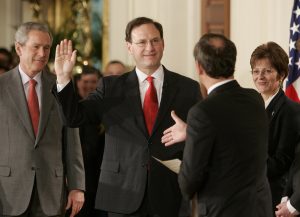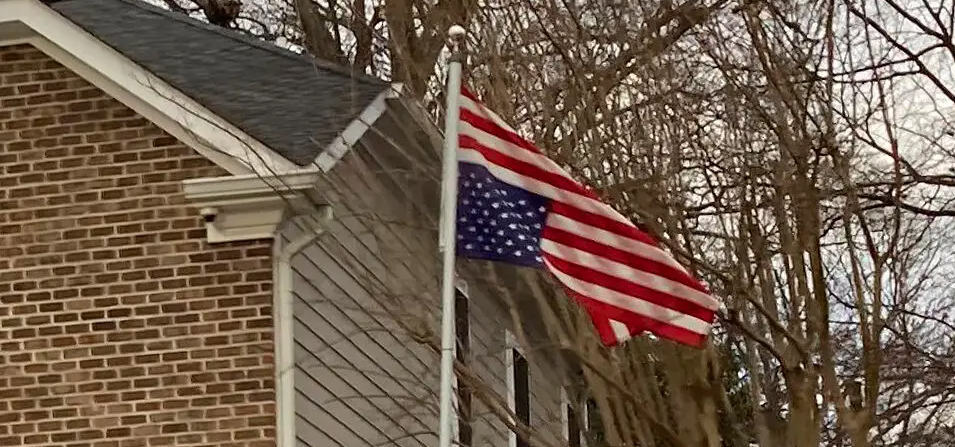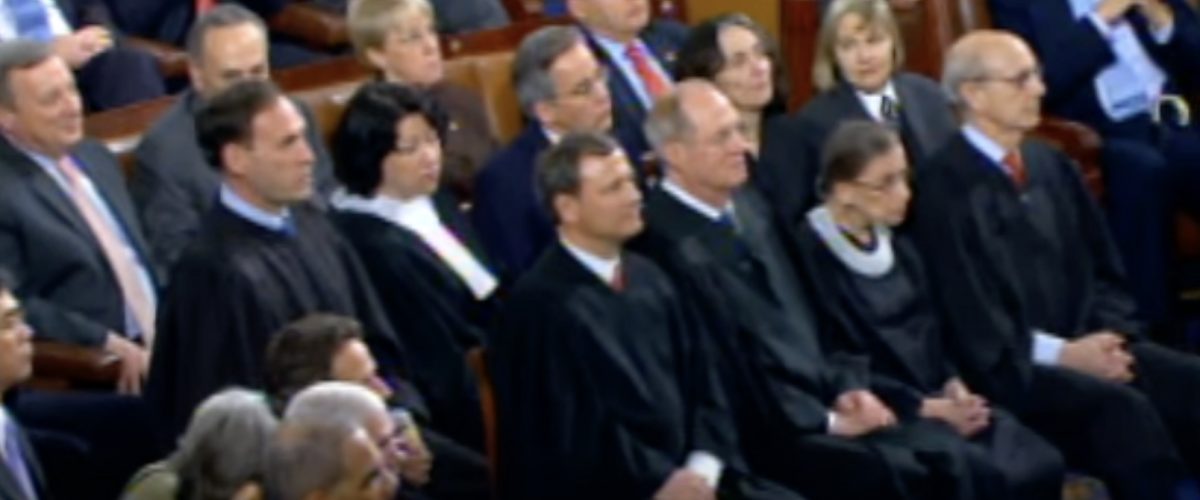Mired once again in a scandal of his own making, Supreme Court Associate Justice Samuel A. Alito Jr. has been found lacking in one of the most important traits for judges at any level, that of an acceptable judicial temperament.
During my 15 years of covering the high court, I witnessed confirmation hearings for six nominees — five to replace retiring justices, the sixth for the elevation of associate justice William H. Rehnquist Jr. to take the middle chair at the court as chief justice in place of Warren Burger. In each case, senators questioning the nominee sought to answer the key question: Is the judge before us temperamentally suited for the highest court in the land?
Seldom has the Senate judged nominees unfit based on that criterion. In five of the six instances during my time covering the court, the Senate voted affirmatively, in three of them unanimously. Only one, Robert H. Bork Jr., was rejected — and decisively so on a vote of 42-58. The reason? Again and again, both in the hearings before the Judiciary Committee and in floor debate, members cited Bork’s tempestuous demeanor and provocative writings.

Chief Justice John Roberts reaches out to shake Supreme Court Justice Samuel Alito’s hand after he was sworn in by Roberts, Wednesday, Feb. 1, 2006, during an East Room ceremony at the White House. (AP Photo/Ron Edmonds)
Nominated by George W. Bush to replace the trailblazing Sandra Day O’Connor, Alito underwent tough questioning by Democrats on the Judiciary panel before being confirmed by the full Senate on Jan. 31, 2006, by a 58-42 vote. Among the “nays” were two senators destined for higher office — Barack Obama and Joseph R. Biden Jr.
In a floor speech announcing his reasons for rejecting Alito’s nomination, Obama pointed to the nominee’s record as a lower court judge in numerous civil and criminal cases and took particular aim at what he saw as a reflexive attitude against workers: “He’s rejected countless claims of employer discrimination, even refusing to give some plaintiffs a hearing. … He’s refused to hold corporations accountable numerous times for dumping toxic chemicals into water supplies. … He’s overturned a jury verdict that found a company liable for being a monopoly when it had over 90% of the market share.”
The criticisms apparently stuck in Alito’s craw. Following Obama’s historic victory in November 2008, and at the invitation of Chief Justice John G. Roberts Jr., the president-elect and vice president-elect, Joe Biden, paid a courtesy visit to the high court justices. According to court officials, all the justices except Alito joined Obama and Biden in the stately West Conference Room, where they chatted around a fireplace.
A year later, during Obama’s first State of the Union address, Alito visibly mocked the chief executive when he took aim at the high court’s landmark Citizens United ruling lifting campaign spending limits.
“With all due deference to separation of powers,” Obama declared, “last week the Supreme Court reversed a century of law that I believe will open the floodgates to special interests, including foreign corporations, to spend without limits in our elections.”
“Following a torrent of criticism for such a breach of courtesy, Alito has not attended a State of the Union since.”
After grimacing and shaking his head, Alito — who was among several of the high court justices in attendance that night in the House chamber — was then caught on television mouthing the instantly infamous words, “That’s not true!” Following a torrent of criticism for such a breach of courtesy, Alito has not attended a State of the Union since.
This past March, he thus avoided another dressing-down of the high court for its decision two years ago reversing Roe v. Wade, the 1973 case that enshrined a limited right to abortion, this time during President Biden’s third State of the Union address. Alito authored that ruling reversing a nearly half century-old precedent. He did so expansively and provocatively, declaring that the Roe court had committed an “egregious” wrong in finding in the Constitution an implicit right to privacy.
In tone and substance, Alito’s opinion for the narrow majority in Dobbs v. Jackson Women’s Health Organization was condescending and pretentious. As to the result itself, Alito proceeded despite an explicit appeal from Chief Justice Roberts to find a middle ground that would avoid an outright reversal of Roe.

An upside down American flag flying on a pole at the home of Supreme Court Justice Samuel Alito on Jan. 17, 2021.
Most recently, Alito has flouted traditional behavior by Supreme Court justices in two well-documented instances of flying flags over his residences which, at least implicitly, endorse the Big Lie that the 2020 presidential election was stolen.
The first was flying the American flag upside down at his house in suburban Virginia. Alito promptly said it was his wife who had flown the flag in response to insults by a neighbor. The U.S. Flag Code, although not legally enforceable, specifically says the flag is not to be inverted “except as a signal of dire distress in instance of extreme danger to life or property.”
That the upside-down flag was on display shortly after the invasion of the U.S. Capitol on Jan. 6, 2021, by a mob incited by Donald Trump, many of whom carried the flag during the riot, is a tacit endorsement of the former president’s repeated claim that he won the 2020 election and Joe Biden occupies the White House illegitimately.

An “Appeal to Heaven” flag at the Alito beach house.
In the second instance, an Appeal to Heaven flag was flown outside Alito’s vacation home on Long Beach Island, N.J., last summer. That banner, until recently a Revolutionary War-era relic, has been repurposed as a symbol for a particularly virulent strain of Christian nationalism. As quoted in The New York Times, historian Matthew Taylor of the Institute of Islamic, Christian and Jewish Studies has said the flag represents “a theological vision of what the United States should be and how it should be governed.”
Like the inverted U.S. flag, the Appeal to Heaven flag was on prominent display at the Capitol on January 6 and was carried by some into the building as the riot unfolded.

An “Appeal to Heaven” flag is seen outside of Speaker of the House Mike Johnson (R-LA) office on Capitol Hill on May 23, 2024. The flag was toted by rioters who stormed the U.S. Capitol on January 6, 2021. Most recently the flag has been displayed outside of the home of Supreme Court Justice Samuel Alito. (Photo by Michael A. McCoy/Getty Images)
According to Taylor and numerous other historians, the renewed use of the white flag with a pine tree is the work of a right-wing Christian author and speaker named Dutch Sheets, who makes a practice of giving the flag to political figures. It has become popular enough that Speaker of the House Mike Johnson has displayed it at the door of his office in the Capitol.
Also known as the Pine Tree flag, one was presented to Trump at a church in Las Vegas where he was campaigning shortly before the 2020 election. The flag has been used ever since as a symbol of the “Stop the Steal” campaign alleging Trump won.
Supreme Court observers are particularly concerned about the flying of both flags at a time when the justices are considering cases having to do with the events of January 6, including a pending decision on Trump’s claim of presidential immunity from prosecution for inciting the insurrection at the Capitol.
Although leading Democratic senators and others have called for Alito to recuse himself from the cases, he cannot be forced to do so and is unlikely to yield to such pressure. Along with Justice Clarence Thomas, Alito has declined recusal in other cases in which his impartiality has been questioned in light of lavish gifts bestowed by well-connected benefactors who might benefit from favorable court decisions involving them or their interests.
He simply does not seem to have the judicial temperament to do so.
Stan Hastey covered the Supreme Court for the Baptist Joint Committee, Baptist Press and Religion News Service from 1974 to 1988. During the 1990s he was a columnist for Baptists Today. He led the Alliance of Baptists from 1989 to 2009.
Related articles:
Justice Alito and Marjorie Greene desecrate Memorial Day | Opinion by Rodney Kennedy
The Catholic Court | Opinion by Dwight Moody


